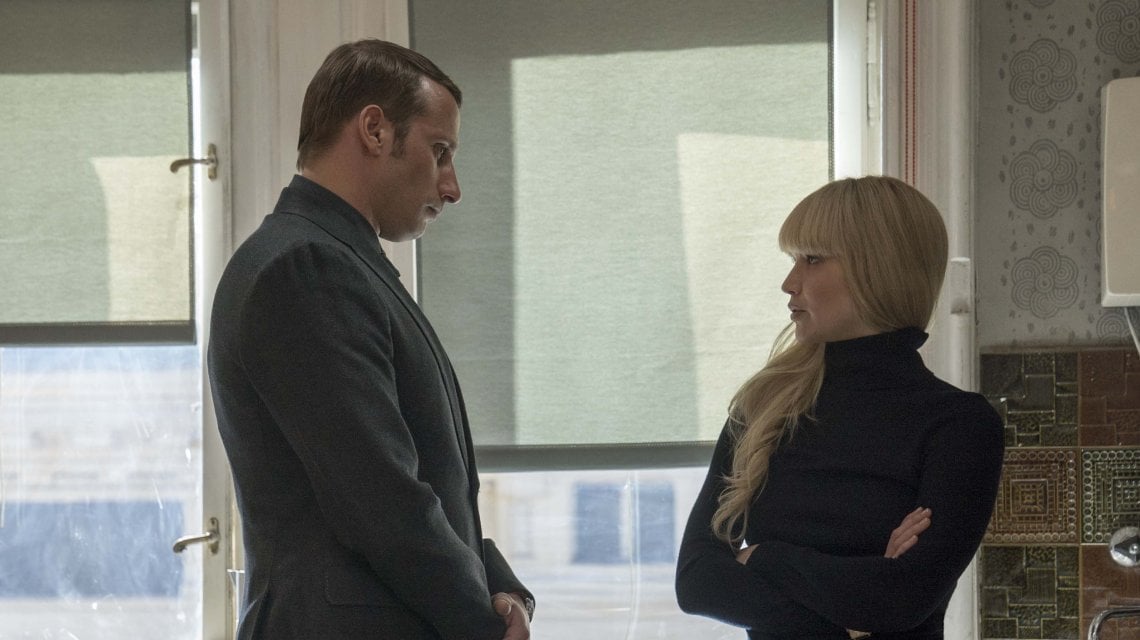Red Sparrow, a 2018 film directed by Franci espionage, is filled with betrayal, double-crosses, secret identities, and shifting allegiances. It explores the tense political climate between Russia and the U.S. during a time of heightened distrust. As the film unfolds, viewers are swept into a labyrinth of intrigue, which culminates in a stunning, complex ending that leaves much to be deciphered. The ending is intricate, leaving some audiences confused, but it also offers a deeper appreciation of the movie’s layers.
At its heart, Red Sparrow tells the story of two central characters: Dominika (played by Jennifer Lawrence) and Nash (Joel Edgerton). Dominika is a Russian intelligence officer, trained as a “Sparrow,” an elite agent of the state. Nash, a CIA agent, is assigned to safeguard a mole within the Russian government. Their paths intertwine as Dominika navigates the dark espionage, torn between loyalty to her country and the possibility of defection. The identity of the mole remains a secret for much of the film, but this mystery is eventually unraveled, exposing the complexity of the plot.
Red Sparrow Ending Explained

Throughout the film, General Vladimir Andreievich Korchnoi (portrayed by Jeremy Irons) is positioned as a key figure. Initially, he is assumed to be loyal to Russia. However, it is revealed that he is spying for the CIA, a move motivated by his disillusionment with Russia’s transformation after the Cold War. Korchnoi grew tired of being a faceless cog in the Russian system and turned to the West for a sense of individualism. His loyalty to the U.S. emerges as a pivotal plot point, and he shares his plan with Dominika.
Korchnoi’s idea is to have Dominika, who is under suspicion of being a double agent, betray him to cement her place as a national hero. This would allow her to continue his work, undermining Russia’s efforts while aiding the CIA. However, Dominika’s motives are not as clear-cut. She does not have a deep allegiance to either the U.S. or Russia, but rather a personal agenda driven by her need for revenge. This complexity adds depth to her character and the narrative.
Dominika’s Drive for Revenge: A Personal Story Behind the Spy Game
Dominika’s journey is defined by her need for revenge against her uncle Ivan, whose actions set her on the path to becoming a Sparrow. Ivan’s abuse, manipulation, and betrayal shape her character, leading her to seek justice in any way possible. From the brutal acts she endures, including rape and murder, to her eventual training as a spy, Dominika’s transformation is both harrowing and empowering. Throughout the film, her quest for vengeance against Ivan is central, and her actions are driven by the desire to settle the score.
Despite being caught in the web of espionage, Dominika’s primary focus remains personal: the destruction of her uncle. As the film progresses, she manipulates both Russian and American intelligence agents to gather evidence against him. This culminates in a dramatic hostage exchange, where Dominika’s cunning becomes apparent. In a surprising twist, the mole is revealed not to be Korchnoi, but Ivan, whom Dominika successfully frames for espionage against Russia.

The Bloody Conclusion: Ivan’s Fate and Dominika’s Triumph
In the film’s tense climax, Dominika’s careful manipulation comes to fruition. She has planted evidence to implicate her uncle, using his fingerprints on a glass and falsified data to create a trail of treachery. As the mole’s identity is revealed, the audience is stunned to learn that Ivan, not Korchnoi, is the traitor. However, this victory is short-lived. As the Americans prepare to take Ivan into custody, a sniper ends his life with a well-placed shot, confirming the fears that the Russians would never let an exposed mole live.
With Ivan’s death, Dominika is left to navigate a dangerous terrain of double agents. She becomes a double mole, maintaining her position within Russia’s intelligence apparatus while secretly working for the CIA. Her ability to deceive both sides and remain above suspicion makes her an invaluable asset. But her true loyalty remains a mystery, as the final moments of the film leave room for speculation about her future and whether she will continue her work with the Americans.
The Final Scene
In the film’s final scene, Dominika answers a phone call. It is unclear whether the call is from the CIA, potentially from Nash, or if it represents something more personal. The choice to end on this note of ambiguity is a key point of contention among viewers. Does Dominika have genuine feelings for Nash, or was her affection simply a manipulation to further her agenda? The final moments raise questions, as Russian ballet music plays in the background, perhaps indicating her continued ties to her homeland or a personal connection.
This final phone call leaves the audience wondering about Dominika’s future. Though she has avenged her uncle’s actions, her life as a spy is far from over. She must continue to live in fear of being discovered, with her secrets making her a constant target. The ending leaves open the possibility of more intrigue, with Dominika’s fate hanging in the balance.

The Deeper Meaning of the Ending: Revenge and the Cycle of Violence
Despite its complex narrative and layers of political intrigue, the true meaning behind Red Sparrow lies in its exploration of revenge and the cyclical nature of violence. Dominika’s actions are motivated by a deep-seated need for retribution against her uncle, Ivan. While the plot involves international espionage, her vendetta is the driving force behind the events of the film.
Dominika does not align herself with either Russia or the U.S. in any meaningful way. Her motivations are personal, and her ultimate goal is to exact revenge on Ivan. While she successfully navigates the spies, her actions suggest that, without her uncle’s death, she would have resorted to more direct methods. The ending suggests that the cycle of violence may continue, as Dominika remains trapped in the dangerous espionage.
Critical Reception of Red Sparrow’s Ending
Upon its release, Red Sparrow garnered mixed reviews, with many critics divided over the film’s complex narrative. The film’s ambitious attempt to combine a revenge story with intricate political intrigue left some viewers feeling overwhelmed. The ending, with its ambiguous final moments and unresolved questions, contributed to the film’s divisive reception.




